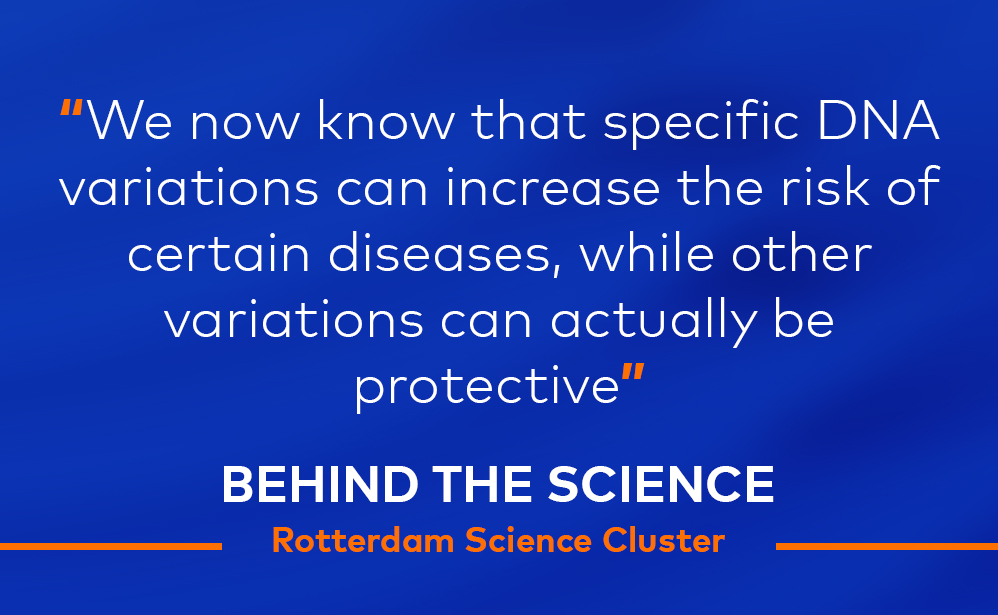“We now know that specific DNA variations can increase the risk of certain diseases, while other variations can actually be protective.”
In the shadow of Rotterdam’s impressive skyline, a world of medical innovation and scientific progress unfolds. From genetics to clinical research, Rotterdam is not only a city with striking buildings, but a breeding ground for groundbreaking discoveries and innovative solutions in the field of Bioinformatics.
On the fifth floor of Erasmus MC, Professor of Complex Genetics André Uitterlinden has been conducting research for some time based on the large ERGO study, which started in 1989 and involved 25,000 elderly residents of Ommoord. An ideal neighbourhood for research because the residents stay there relatively long. This provides a good basis for following them over a longer period. Uitterlinden explains: “The participants undergo regular extensive medical examinations, including advanced imaging techniques such as MRI and CT scans, and we collect and analyse a lot of biomaterial and DNA.”
The DNA data is a valuable source of knowledge about the genetic basis of diseases. Uitterlinden emphasizes: “Thanks to these samples, we have learned a lot about the underlying mechanisms of diseases and health in the past 25 years, and this understanding is still growing.”
“For example, we now know that specific DNA variations can increase the risk of certain diseases, such as eye diseases or osteoporosis, while other variations can be protective. With the help of this enormous amount of information, we are increasingly able to identify genetic factors that influence the development of diseases. We have been doing this for some time now in collaboration with numerous research institutes worldwide, and thanks to the large number of participants (there are now millions worldwide), our data is extremely reliable.”
This is why the dataset is also the basis for the European project ‘1+ Million Genomes’, of which Uitterlinden is also one of the project leaders. “This project aims to create a database with the complete genetic code of one million ‘average’ Europeans, including more than 20,000 Dutch people, for better future personalized care.” In Europe, the Erasmus MC is taking a leading role in this Genome of Europe project.
It is the collaboration between companies, research and knowledge institutions, and the government in Rotterdam that is the bedrock for many medical innovations that originate here and find their way to patients all over the world.
The Rotterdam Science Tower is one of the landmark buildings in Rotterdam filled with innovation and entrepreneurship. Get in touch with Teun to find out more.

